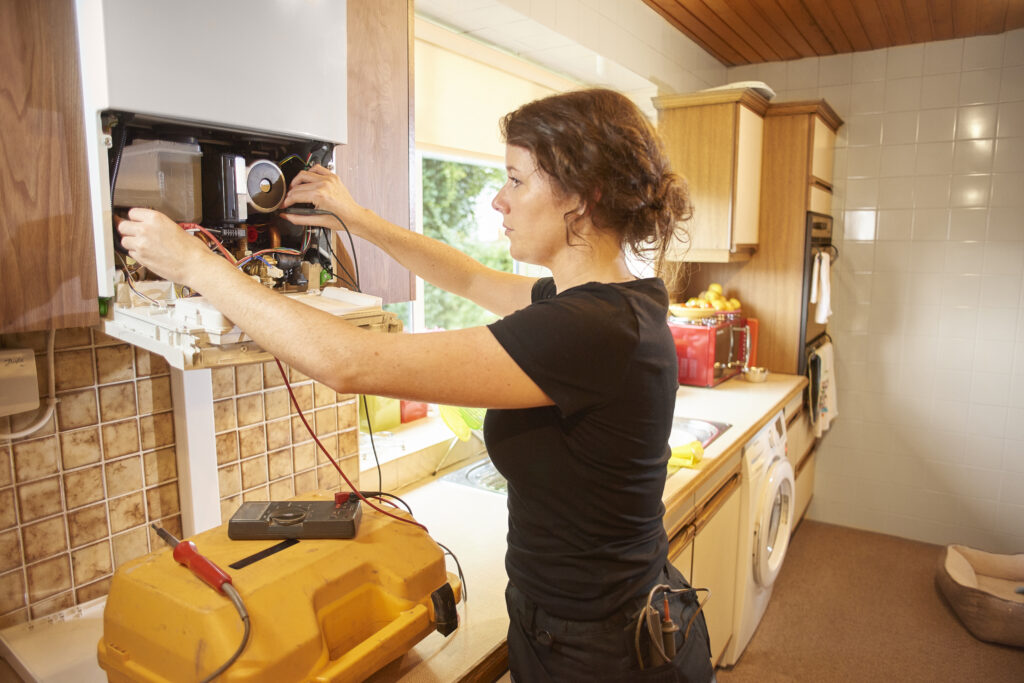Owning a home is a significant milestone in one’s life and often represents one’s most substantial financial investment. However, with ownership comes the responsibility of maintaining and protecting your property. While you can take preventive measures to reduce the risk of emergencies, unexpected events can still occur. That’s where home emergency cover comes into play. In this comprehensive guide, we will delve into the world of home emergency cover, explaining what it is, why it’s essential, what it typically covers, and how to choose the right policy for your needs.
Understanding Home Emergency Cover
Home emergency cover, assistance, is a type of insurance policy designed to provide financial protection and assistance in the event of sudden and unforeseen emergencies that can disrupt your daily life or cause significant damage to your home. These emergencies can range from a burst pipe or boiler breakdown to a sudden electrical failure or a pest infestation. The purpose of cover is to offer owners peace of mind by ensuring that help is readily available when they face such situations.
Why Home Emergency Cover Is Essential
Financial Protection: Home emergencies can be costly to resolve, especially if you have to call out a professional tradesperson at short notice. cover can help cover the expenses associated with emergency repairs, saving you from unexpected and potentially substantial bills.
Rapid Response: Most cover policies provide access to a 24/7 helpline. This means that in the event of an emergency, you can quickly get in touch with a professional who can assess the situation and take immediate action to prevent further damage.
Peace of Mind: Knowing that you have a safety net in place can offer you peace of mind as a homeowner. You won’t have to worry about finding and vetting tradespeople in the middle of a crisis or dealing with the financial strain of emergency repairs.
Convenience: Home emergency cover is designed to make dealing with unexpected situations as convenient as possible. It streamlines the process of getting assistance, so you can get back to normal life sooner.
What Does Home Emergency Cover Typically Include?
The specific coverage provided by policies can vary from one provider to another, so it’s essential to read the policy documents carefully and understand what’s included. However, here are some common elements that you can typically expect to find in a home emergency cover policy:
Plumbing and Drainage: This covers issues such as burst pipes, blocked drains, and leaking radiators. It often includes call-out fees and the cost of repairs.
Heating and Boiler Breakdown: This covers boiler breakdowns and central heating failures, ensuring that you have access to hot water and heating when you need it most.
Electrical Failures: Home emergency cover can help with sudden electrical failures, ensuring that you can continue to use essential appliances and lighting.
Pest Infestations: Some policies provide assistance with pest infestations, such as rodents or insects, which can cause damage to your house and pose health risks.
Security and Locks: If you’re locked out of your house or experience a security breach, home emergency cover may include locksmith services and securing your property.
Roofing and Glazing: This covers issues with your roof or windows, such as leaks or broken glass. It can help prevent further damage from water infiltration.
Alternative Accommodation: In some cases, if your house becomes uninhabitable due to an emergency, home emergency cover may provide coverage for temporary accommodation costs.
Emergency Gas Supply: This ensures you have a continuous supply of gas in case of a leak or disruption.
Remember that policy details can vary, so it’s crucial to thoroughly review what each policy includes before making a decision.
How to Choose the Right Home Emergency Cover
Selecting the right cover for your needs requires careful consideration. Here are some steps to help you make an informed decision:
Assess Your Needs: Start by assessing your house and the potential risks it faces. Consider the age and condition of your property and any existing insurance policies you have in place.
Research Providers: Look for reputable insurance providers that offer cover. Read customer reviews and check their financial stability.
Compare Policies: Request quotes from multiple providers and compare the coverage and cost of each policy. Pay close attention to the limits, excesses, and any exclusions.
Check for Additional Benefits: Some policies may offer additional benefits, such as annual boiler servicing or house security assessments. These can add value to your policy.
Review Policy Terms: Carefully read the policy terms and conditions. Make sure you understand what is covered, any limitations, and how to make a claim.
Consider the Excess: The excess is the amount you need to pay towards a claim. A higher excess often means lower premiums, but be sure it’s an amount you can afford in the event of a claim.
Ask Questions: If you have any doubts or questions about a policy, don’t hesitate to reach out to the insurance provider for clarification.
Bundle Policies: If you have other insurance policies, such as home insurance or car insurance, consider bundling them with the same provider to potentially receive discounts.
Read Reviews: Look for online reviews and testimonials from customers who have filed claims with the insurance provider. This can provide insight into their claims process and customer service.
Consider Your Budget: Determine how much you are willing to spend on home emergency cover and choose a policy that fits within your budget while providing adequate coverage.
Common Exclusions and Limitations
It’s crucial to be aware of the common exclusions and limitations associated
Pre-existing Conditions: Most policies won’t cover issues that existed before you purchased the policy. It’s essential to maintain your home adequately to avoid such issues.
Age and Condition of the Property: Some policies may exclude properties of a certain age or condition, so be sure to check if your home meets the criteria.
Maintenance Requirements: Homeowners are typically expected to maintain their properties in good condition. Neglecting regular maintenance may result in claims being denied.
Excessive Call-Outs: Some policies may limit the number of call-outs you can make in a year, so be cautious about making non-essential claims.
Excess Fees: As mentioned earlier, you’ll have to pay an excess fee for each claim. Be sure you understand this cost and factor it into your decision.
Waiting Periods: Some policies have waiting periods before they become effective. Be aware of these waiting periods when choosing coverage.
Making a Claim
If you ever need to make a claim on your insurance cover policy, follow these steps:
Contact Your Provider: Notify your insurance provider as soon as possible. Most policies have a 24/7 helpline for emergencies.
Provide Details: Be prepared to provide detailed information about the emergency, including what happened and when it occurred.
Follow Their Instructions: Your provider will guide you on the next steps, which may include sending a qualified professional to assess the situation or arranging repairs.
Keep Records: Keep records of all communication with your insurance provider, including claim forms and receipts for any expenses incurred.
Be Patient: Depending on the nature of the emergency, it may take some time for repairs to be completed. Be patient and follow up with your provider as needed.
Boiler insurance cover is an essential insurance product designed to shield owners from the inconvenience and financial strain of unexpected boiler breakdowns. Boilers are the heart of house heating systems, and their sudden failure can disrupt daily life, especially during colder seasons. With boiler cover, owners can rest easy knowing that in the event of a malfunction, a skilled engineer will promptly assess and repair the issue.Conclusion
Home emergency cover is a valuable insurance product that can provide financial protection and peace of mind to owners facing unexpected crises. By understanding what it covers, how to choose the right policy, and the potential limitations, you can make an informed decision to safeguard your house and family. Remember that prevention is also key, so regular maintenance and care of your property can help reduce the likelihood of emergencies in the first place.





